A few days after the serious attack at the Shuafat checkpoint, in which Sergeant Noa Lazar was killed, no particular vigilance was evident at the crossing points from Judea and Samaria into the Green Line.
At one of the checkpoints south of Jerusalem, one of the female soldiers was engaged in a heated conversation with a security guard soldier, who glanced at me half-eyed, and at the A-Zaim crossing, which separates Ma'ale Adumim from the capital city of Israel, a female soldier pulled out a green lollipop from her mouth while looking at the vehicles passing by Just a few hundred meters away, fighters worked intensively to try to locate the terrorist Udai Tamimi, but in the crossings everything returned to the familiar standard - until the next attack.
In the settlements surrounding Jerusalem, a group of 13 settlements located on the sides of the city - the settlements of Gush Edumim to the east, Mount Gila to the south, Mount Adar to the west and New Gibeon and Beit Huron to the north - watched in amazement what was happening in their sector.
While an armed terrorist carries out a serious attack at a checkpoint near them and the alerts cross every possible border, they are forced to fight these days in order to preserve what they define as critical security components, and are very afraid that if they are not preserved - it will cost human lives.
The names of Dafna Meir and the Vogel family came up in conversations with the residents again and again, alongside the all-too-difficult sentence: "They are abandoning us."
Avihai Sorshan, Ma'ale Adumim KBT: "The guys are not ready.
They had years to prepare for the event and they did almost nothing, and only in the last six months did the wheels start to move a little.
You can give headlines like 'the responsibility is transferred to the police', but who will replace our flashlight when we need one?
They have no answers"
To understand what this is about, you have to go back.
way back
In 2006, as part of the establishment of the separation fence, the Israeli government decided that the security responsibility for the settlements surrounding Jerusalem would be transferred from the IDF to the Israel Police. These are 13 settlements that have no connection between them other than the fact that they surround Jerusalem on all sides: Ma'ale Adumim, Kfar Adumim, Alon, Views of the Euphrates, Mount Adar, Mount Gila, Kidar, Anatot, New Gibeon, Givat Ze'ev and Beit Horon.
On the face of it, this is a very significant step towards de facto sovereignty.
For decades now, the IDF has accepted that they are forced to deal with issues of internal security and the security of localities instead of fighting terrorists and preparing its forces for a conflict within its borders. The Green Line The step of naturalizing a settlement from IDF security to police security, as happens in every other settlement within the Green Line, is another step towards such normalization.
According to the decision, it was agreed to settle the issue in joint staff work within three months.
More than 15 years have passed since then.
For several years now, the communities surrounding Jerusalem have been crying out for help, because they say they are being abandoned as part of a power struggle between the IDF and the police, and it is hard not to rub your eyes in astonishment at the confrontations surrounding the issue. The classification of these settlements from forward to rearward settlements, even though they are threatened settlements within the Yush. About six months ago, the MLA compiled a list of settlements in the region that would be classified as forward, instead of defining them as rearward today - thus defining them in fact as having a high level of threat.
holes in confidence
In 2019, the IDF decided to disband the standby squads in the settlements and ordered the weapons to be collected from them, due to the transfer of the security responsibility for the settlements from the army to the MGB.
As a result, the communities around Jerusalem were left with only partially functioning standby classes.
It was only last June that the MGB began to officially retrain the standby classes. In the past year, the process has been accelerated, among other things, under political pressure from the heads of councils in the Yosh.
About six months ago, a target date was set, October 1, as the date for the transfer of responsibility from the army to the police.
The problem was that the localities did not believe that this would actually happen, because for many years they have been trying to consolidate the process and it is not finished.
A week before Rosh Hashanah, the police informed the heads of the settlements and the coordinators of the ongoing security that on October 1st, control would pass to them, and the Rabbis would stop their work. This meant, from the residents' point of view, that precisely during the holidays, against the background of a particularly severe wave of terrorism, the settlements surrounding Jerusalem would be adversely affected in terms of security Dramatic, because there is a lot of headquarters work that has not been done and many gaps that need to be filled in order for the task to be completed in a high-quality way. Finally, the decree was postponed until November 30. According to the MGB, the initial announcement was about six months ago, and the announcement before Rosh Hashanah was only a reminder, so the residents' claims excessive
"Tens of thousands of residents in a very complex area are promiscuous," says Lt. Col. (Res.) Amos HaCohen, chairman of the Kfar Adumim and Gush Adumim executive board, harshly. The two government ministries. There is rampant amateurism here, and the security of thousands is at stake. We all see how the army and the police are tense, but this administrative event was done on our backs precisely at a time of security reality."
It should be noted that the majority of residents are in favor of transferring security responsibility from the IDF to the police. The problem lies in the way things are done. "This is a defining event.
Finally, the Israeli government will complete the naturalization of Yosh, but that is precisely why this move must be carried out in a perfect and well-honed way, as a pilot for the rest of Yosh," says Avihai Sorshan. For the past two years, he has served as Rabbi of the settlement of Kfar Adumim, and for half the year The last one he also serves as the KBT of Gush Adumim settlements - Kfar Adumim, Alon and Nopi Perat. "Unfortunately, as I see it, the guys are not ready.
They had years to prepare for the event and they did almost nothing, and only in the last six months did the wheels start to move a little.
The feeling is that only 30 percent of the work has been done."
The problems, the residents say, are actually in the small details.
"God is in the small details. You can give headlines like 'The responsibility is transferred to the police,' but who will replace our flashlight when we need one? They have no answers," says Sorshan.
Rabbis are in danger
One of the significant reasons for the anger among the residents is the fact that the Rabbis will be fired de facto, due to what they define as disgraceful salary conditions. Today, a Rabbi in a settlement in Judea and Samaria is required to live there, and in practice he is connected to security incidents 24 hours, seven days a week.
However, the police informed the heads of the settlements that the salary of the Rabbis, which is partly budgeted by the Ministry of Defense and partly by the settlements themselves, will drop from around NIS 14,000-15,000 to about NIS 8,000. to the waiter
It is impossible to demand from them to work of this magnitude for a pittance," says the priest angrily.
The Rabbis themselves say that these are humiliating conditions: "They are playing with us.
They offered a disgraceful proposal that suits a 21-year-old boy who has no experience and cannot be trusted." The localities claim that the goal of the police is to keep the standards with them and to appoint police officers to the position. The problem is that these will not be in the locality all hours of the day and will not necessarily be able to act as efficiently.
The MGB, on the other hand, completely rejects the claims. Sub-Superintendent Amram Nidam, commander of the MGB covering Jerusalem, who until recently served as the head of the settlements department in the MGB, says that already half a year ago the residents were informed of the expected transfer of responsibility, and that An interested officer can join the police and continue his work.
"That no one will tell me that it's between now and now. For six months they did nothing, and suddenly when I was appointed to the position of commander of the entourage a month ago and the first thing I did was to remind them what was happening - I heard a shout. Noise and ringing."
He points out that it was suggested that the Rabbis join the police in an expedited process, and that it would be possible for them to receive salary increases through additional responsibility, as is currently the case. According to him, the fact that the people in charge of the settlements will be police officers will allow them to receive powers that the Rabbis currently do not have.
"Our NCOs have arrest and detention powers.
Powers to arrest Shachaim, there are no such things today."
Who will stand at the gate?
On Tuesday, Minister of the Interior Ayelet Shaked arrived in the settlement of Alon.
The residents led her to a nearby hill from which the view of the Shuafat checkpoint was visible.
When she realized how much easier it was for the terrorist to reach Alon instead of entering Jerusalem, they claimed that in a few weeks it is not at all certain who will be responsible for repairing the gate of the settlement in the event of a malfunction, and the way will be open straight in.
God is in the small details, did we already say?
Hanan Rubin, Alon: "Eight months ago, they informed the guards at ShG to leave within a day, and after we made a fuss, they gave an extension.
This is what awaits us.
Fear God, volunteers man the guard posts and Palestinian vehicles from Ramallah or Nablus can arrive and enter the kindergarten or one of the houses"
"Fortunately, the terrorist did not understand that instead of going to the checkpoint, where he would normally be killed, he could travel to one of the settlements surrounding Jerusalem without any hindrance," says a frustrated Hanan Rubin, a resident of the settlement.
"Eight months ago, the guards in the Sheg were informed to leave within a day, and after we made a commotion they gave an extension.
This is what awaits us.
This is the fear of God, volunteers man the guard posts and Palestinian vehicles from Ramallah or Nablus can arrive and enter our kindergarten or one of the houses.
Unfortunately, there have already been cases like this, such as the Vogel family or the murder of Dafna Meir, and it ended very badly."
"We've been hearing for 15 years that it will be fine. Robin, photo: Yehoshua Yosef
"This is a real danger to life, not just a slogan," says a Rabbi in one of the settlements. "Take, for example, the issue of the gates.
In recent years, I have corrected the Yishuv gate by more than NIS 200,000.
The IDF funded it because the army understands that this is life. Now who will fix the gate? The police are not prepared to face the frontline command, and we will be left without a gate. It is dangerous."
A few tens of kilometers south of there, on the other side of what is known as "Jerusalem wrap", is the settlement of Har Gila.
On top of a mountain, between two villages - Beit Jala, from where Gila was shot in the second intifada, and the village of Walja, both suburbs of Bethlehem, stand the houses of the settlers.
Every few days terrorists throw Molotov cocktails at fences, a few weeks ago there was an attempt to break into the settlement.
Now the chairman of the settlement, Leah Peleg, does not know at all how she will protect the homes of her residents.
"I'm not ready to accept security responsibility, I don't understand it," she clarifies honestly.
"When there's an event, we call the police chief who is available 24 hours a day, and he takes care of things.
The army is not coming today, the police don't talk to us because we are civilians, and who will we talk to if the Rabbinate is fired?
We had an incident of fear of intrusion a few weeks ago, who will handle it?
The police didn't know what was coming when I talked to them. Our Rabbi lives in the settlement and is available 24 hours a day, I can't afford someone to come half an hour after throwing stones."
Tanach Nidem, for his part, says that he strives for the security NCOs of the Mageb to live in the communities where they will be assigned, and in any case the security of the residents will not be compromised. "With all due respect, the mindset of the residents is not the issue, because they need to receive service - and it doesn't matter from whom.
The responsibility is all mine, and no one else's.
I will do all the necessary order of operations so that we are ready on the day of the order."
The residents in all the settlements surrounding Jerusalem repeat again and again that they are not opposed to the transfer of responsibility to the police, and vice versa, but this should be done in an orderly manner.
The chance, they say, that by November 30 all the work of the headquarters will be finished, is zero.
"Someone must be the responsible adult who says stop, that the move should be promoted, but not like this. We need a postponement of a few months so that this event, this pilot, is perfect," says a member of the emergency department.
"In the army we were given two days a year of intensive training, and when we came to the police they said they had no such thing as reserve days and suggested that they train us in the hours after work in the settlements.
it's joke".
Another resident who is briefed on the details calls for the procedure to be postponed until June 2023 and for the work to be carried out as required: "Establish work teams, learn the concept of operation, pass the baton in an orderly manner."
If this does not happen, the residents threaten, they will go to war.
"Right now there is a discourse and we are talking, but if we feel it is not working - we will not cooperate under any circumstances."
"There is a government decision, but two defense ministries, the Ministry of Internal Security and the Ministry of Defense, are unable to reach agreements," says Hanan Rubin.
"The MLA told Ayelet Shaked that everything is fine and everything is being taken care of, that there are only a few small things left and the event is over.
The problem is that we've been hearing this for 15 years."
Amos HaCohen also agrees: "A date set by some factor in the Budget Division of the Ministry of Defense or the Police is not sacred. Leave the Rabbis, transfer responsibility for the sector, including gates, fences, weapons and more.
Have a coordinated meeting between the IDF, the police and the residents, and make it orderly. You must not wait until something God forbid happens, and in the meantime the residents will live in an unbearable reality because of a budget struggle."
Regarding the extension of the transition period, Tanach Nidam says that he partially supports the residents' demand. It is very important to do things in cooperation with the residents and reduce the pressure."
√
were we wrong
We will fix it!
If you found an error in the article, we would appreciate it if you shared it with us

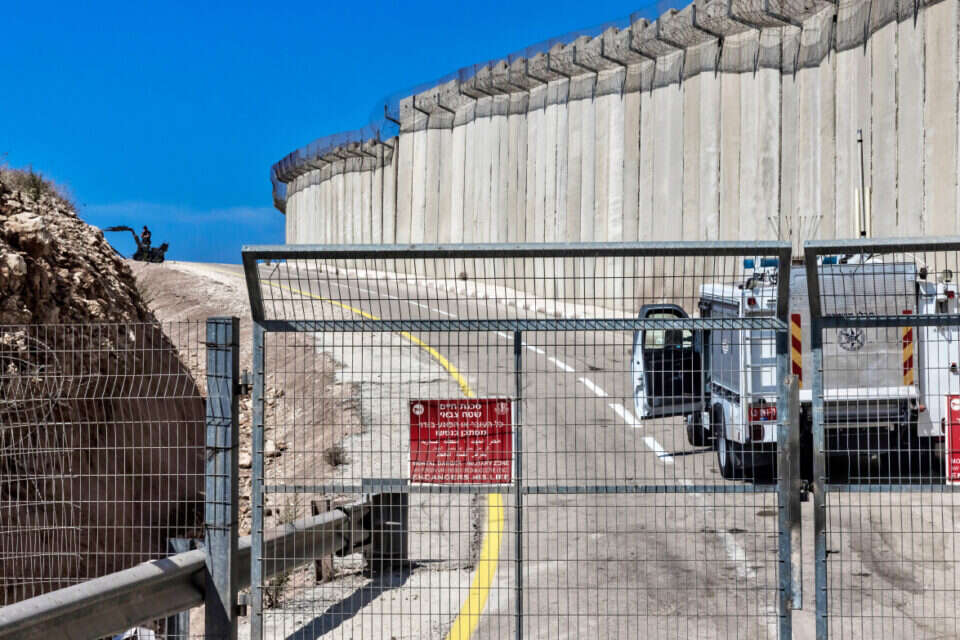


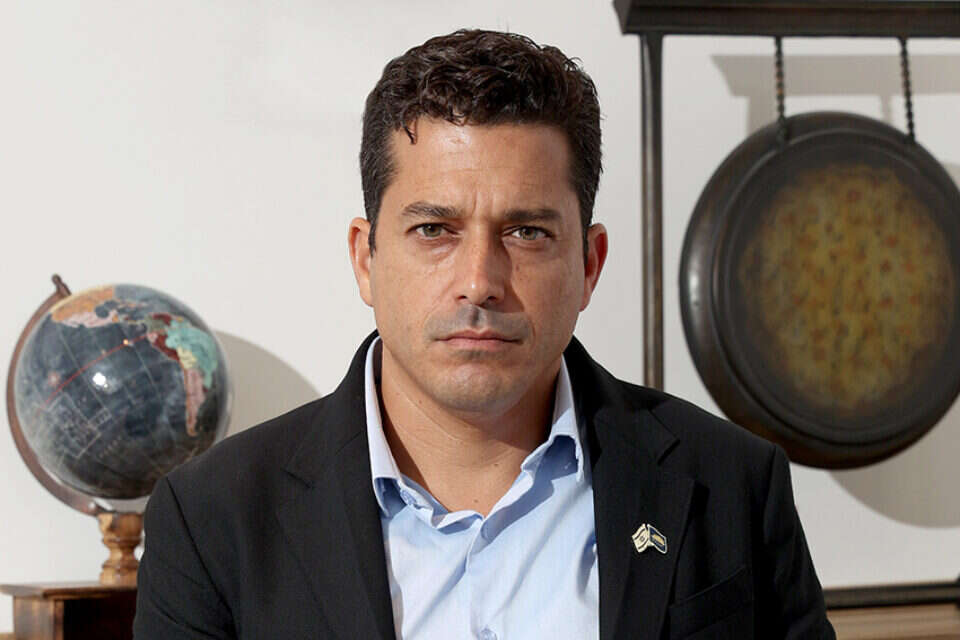
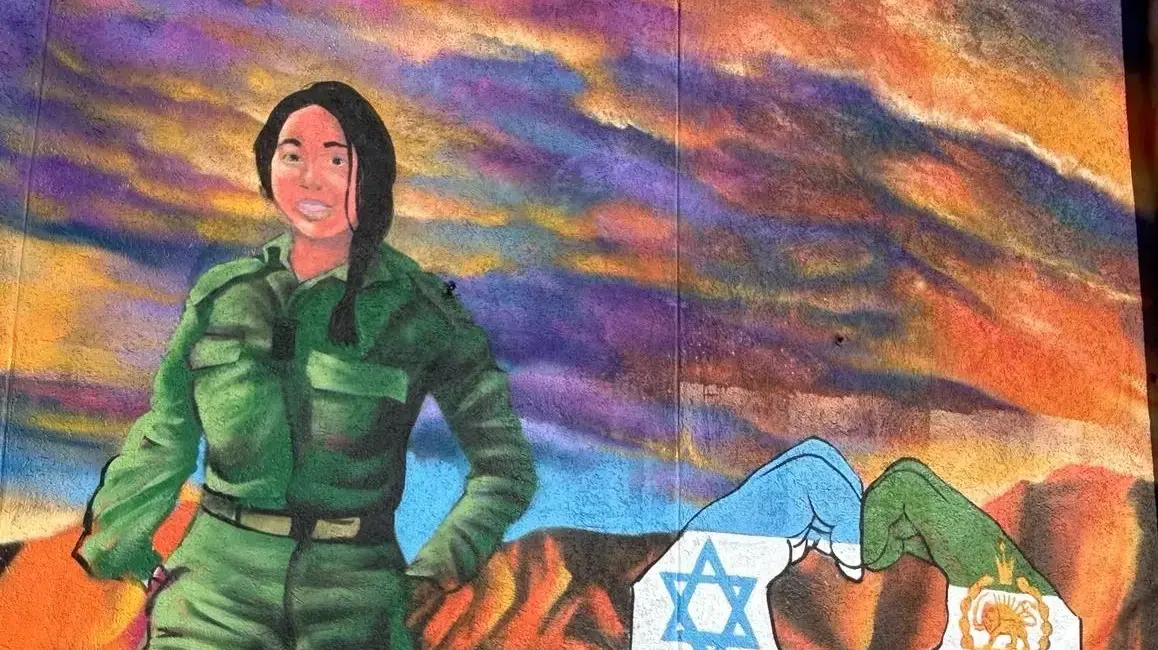
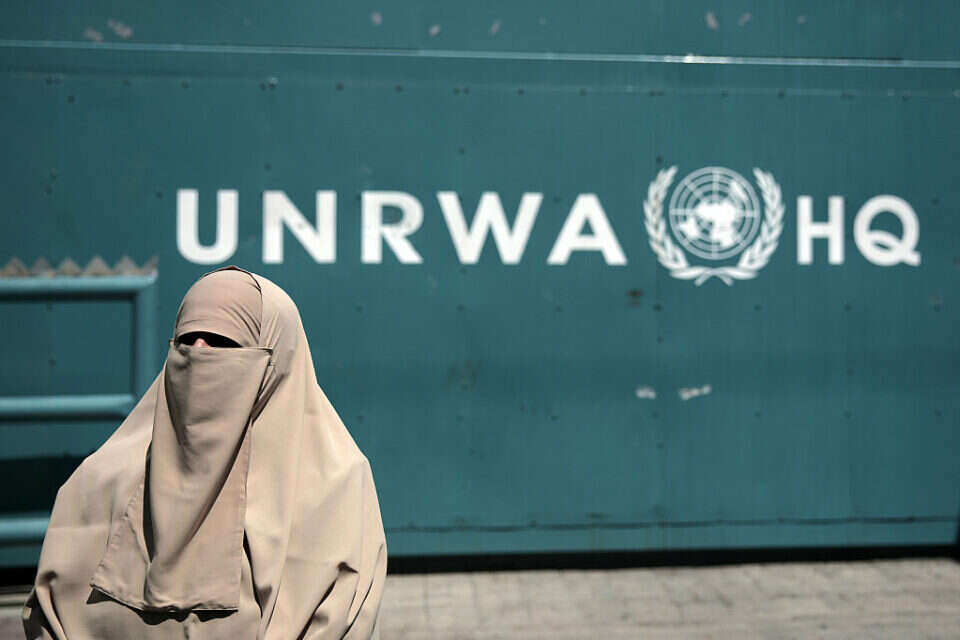

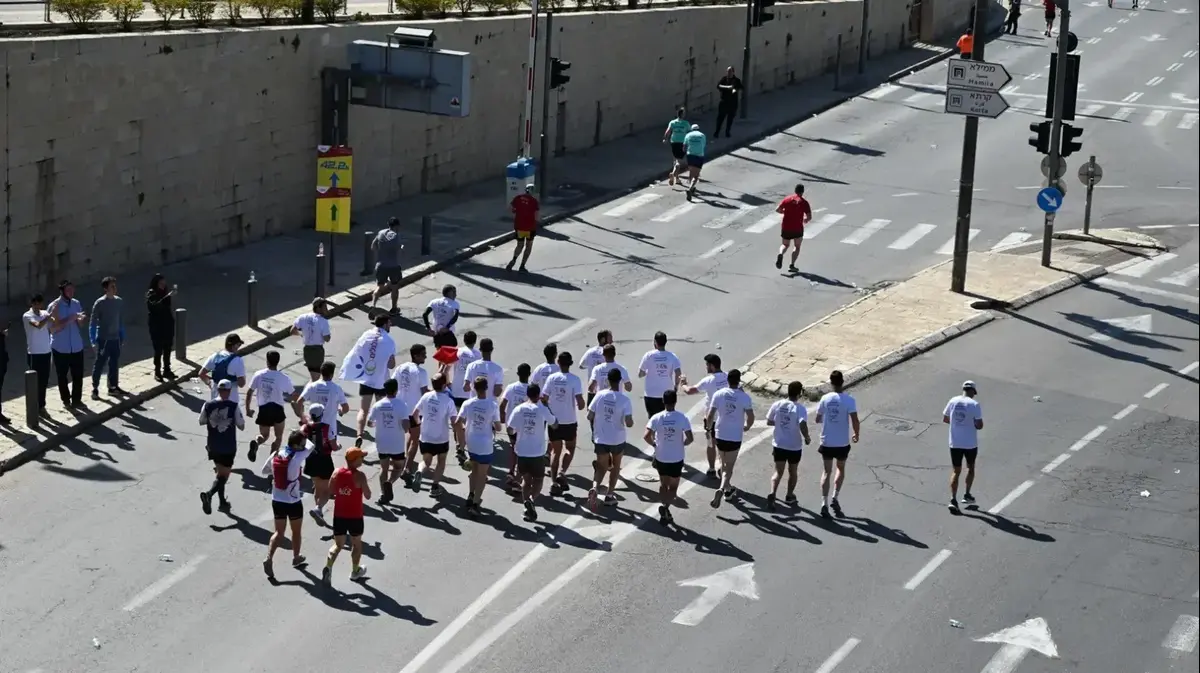
/cloudfront-eu-central-1.images.arcpublishing.com/prisa/W2LEP7D4LK55CH5UE7D4GDSV7Q.jpg)